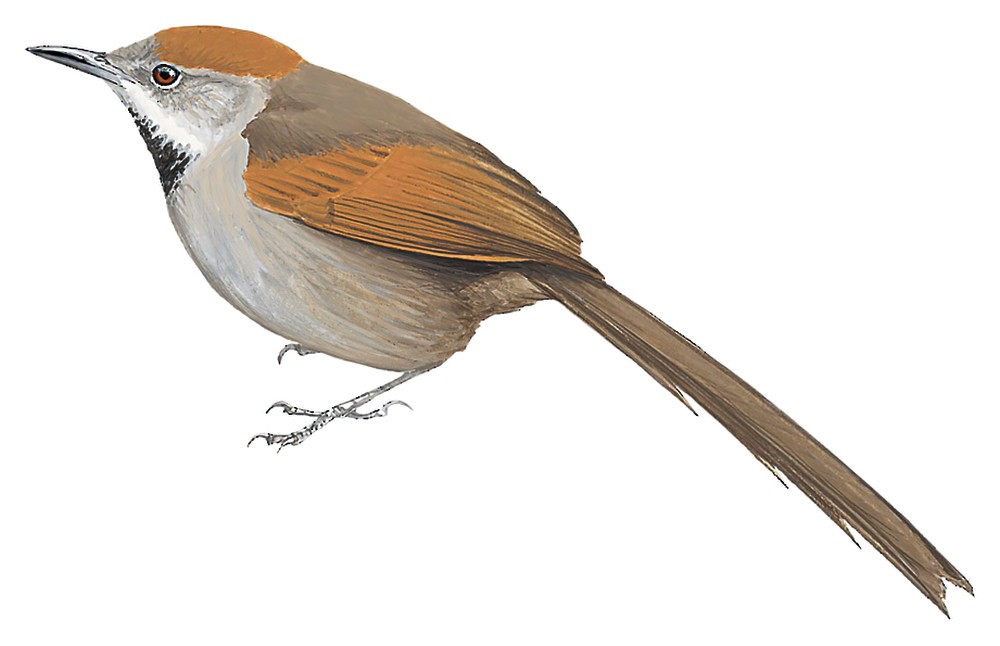Silvery-throated Spinetail / Synallaxis subpudica

Silvery-throated Spinetail
SCI Name:
Protonym: Synallaxis subpudica Proc.Zool.Soc.London Pt1 p.10
Taxonomy: Passeriformes / Furnariidae / Synallaxis
Taxonomy Code: sitspi1
Type Locality: Bogota; type a trade skin.
Author: Sclater, PL
Publish Year: 1874
IUCN Status: Least Concern
DEFINITIONS
SYNALLAXIS
(Furnariidae; Ϯ Rufous-capped Spinetail S. ruficapilla) Gr. συναλλαξις sunallaxis, συναλλαξεως sunallaxeōs exchange; perhaps given because Vieillot thought the two species may represent the two sexes of a single species, or an allusion to their characters warranting generic separation. Reichenbach 1853, complained that Synallaxis, of feminine gender, contained the Latin masculine noun axis axle, and wondered what scientists were to make of it!; "SYNALLAXE, Synallaxis. Bec grêle, entier, pointu; mandibule supérieure un peu arquée, l'inférieure droit; narines couvertes de plumes à leur base; ailes courtes, arrondies." (Vieillot 1818); "SYNALLAXE, Synallaxis. Genre de l'ordre des Oiseaux SYLVAINS et de la famille des GRIMPEREAUX ... La SYNALLAXE A QUEUE ROUSSE, Synallaxis ruficauda, Vieill., a été apportée du Brésil. ... La SYNALLAXE A TÊTE ROUSSE, Synallaxis ruficapilla, Vieill., se trouve au Brésil. ... Les différences qu'on remarque entre cet oiseau et le précédent, ne caractérisent-elles pas les sexes?" (Vieillot 1819); "Synallaxis Vieillot, Nouv. Sict. Hist. Nat., 24, 1818, p. 117. Generic characters only; species added op. cit., 32, 1819, p. 310. Type, by subsequent designation, Synallaxis ruficapilla Vieillot (G. R. Gray, List Gen. Bds., 1840, p. 17)." (Peters 1951, VII, 80).
Var. Synnalaxis, Synnallaxis, Synalaxis.
Synon. Anabates, Barnesia, Gyalophylax, Parulus, Poecilurus, Siptornopsis.
subpudica
L. sub near to; specific name Synallaxis pudica P. Sclater, 1859 (= syn. Synallaxis brachyura); "I was at one time inclined to refer it to the young of S. pudica, but cannot satisfy myself that this would be correct" (P. Sclater 1874) (Synallaxis).
UPPERCASE: current genus
Uppercase first letter: generic synonym
● and ● See: generic homonyms
lowercase: species and subspecies
●: early names, variants, mispellings
‡: extinct
†: type species
Gr.: ancient Greek
L.: Latin
<: derived from
syn: synonym of
/: separates historical and modern geographic names
ex: based on
TL: type locality
OD: original diagnosis (genus) or original description (species)












